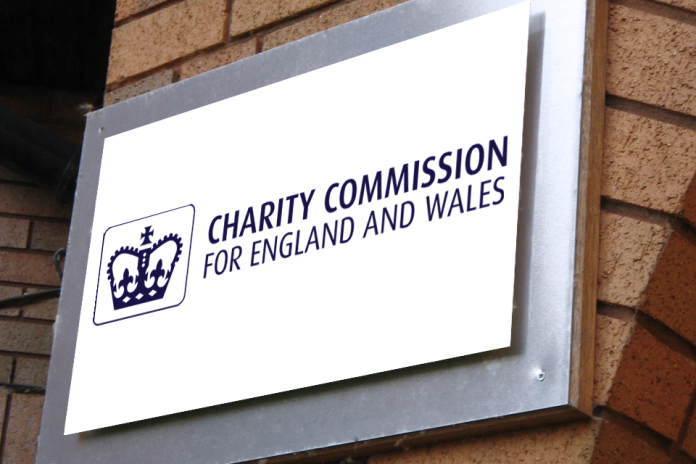The Charity Commission has lifted its statutory supervision of Oxfam GB, after concluding that the charity has significantly strengthened its approach to keeping people safe.
A report published today confirms that Oxfam GB has responded positively to the Commission’s scrutiny. The charity has implemented wide-ranging changes to its organisational culture, and strengthened its approach, resources and processes, such that people served or employed by the charity are now better protected against abuse, exploitation, and other forms of harm.
But the Commission stresses that effective safeguarding is “never complete” and that systems and processes, however good, must be underpinned by leaders and senior managers remaining vigilant and continuing to place the highest priority on keeping people safe.
The Commission’s statutory inquiry into the charity, which concluded in June 2019, found the charity’s governance and culture with regard to safeguarding had repeatedly fallen below standards expected, and that it tolerated poor behaviour and failed to meet promises made on safeguarding. At the time, the Commission said that “significant cultural and systemic change” was required to ensure people who came into contact with the charity were safe from harm.
In total, the charity committed to deliver against 100 actions or recommendations to improve the charity’s governance and approach to safeguarding – some of which were implemented while the original inquiry was ongoing. The regulator issued Oxfam with a legal direction under section 84 of the Charities Act to implement those actions and recommendations that were outstanding at the conclusion of the inquiry in June 2019.
The charity has since been subject to a period of statutory supervision. The regulator has monitored and engaged with Oxfam on the implementation of the actions, which has included overseeing an independent assessment of the charity’s progress in implementing the actions and recommendations.
The regulator has worked closely with Oxfam on the findings from this independent review, ensuring that the large majority of the 100 actions are now complete with only limited areas in which the charity needs to undertake further work.
The Commission is therefore satisfied that its period of statutory supervision can end, and the charity has now reverted to the Commission’s standard regulatory oversight. As is routine for charities of Oxfam’s size and reach, the Commission will remain in regular contact and will follow up on any new concerns as a matter of urgency.
Helen Stephenson, chief executive of the Charity Commission, said the Commission’s inquiry had been the catalyst for significant progress at Oxfam GB, but warned against complacency:
Oxfam GB’s leadership has done much work since 2019 to respond to our inquiry, and learn lessons from the charity’s past mistakes and failings. That effort, overseen and scrutinised by the Commission, means that Oxfam GB is now providing a safer environment for all who come into contact with it. But safeguarding is never ‘done’. As our report makes clear, while Oxfam has made significant progress, its leaders must ensure that the charity’s living culture – the spoken and unspoken expectations placed on all staff and all volunteers – continues to promote an environment that keeps people safe into the future.
She added that these issues go beyond Oxfam and that all charities should prioritise effective safeguarding:
The public expect the way charities go about their work to be consistent with the spirit of charity – charitable aims don’t justify uncharitable means. No charity can afford to lose sight of its core purpose in the way it operates on the ground, no matter how large or complex its operations become. And when a person comes to harm because of their contact with a charity, it betrays everything charity stands for.
All charities working with vulnerable people overseas or at home should ensure their approach to safeguarding is robust and effective. The right systems, processes and recourses are vital, but even more important are the intangible factors – leadership, organisational culture, and the commitment and integrity of everybody involved in a charity.
The international aid sector has made progress on safeguarding. But as the recent House of Commons International Development Committee report made clear, more work needs to be done by charities and other organisations delivering aid, including to ensure those in receipt of aid are empowered to report any concerns about exploitation or abuse.
Ends
Notes to editors
- The Charity Commission is the independent, non-ministerial government department that registers and regulates charities in England and Wales. Its purpose is to ensure charity can thrive and inspire trust so that people can improve lives and strengthen society.
- The Commission’s full follow-up report, as well as a summary of the independent report by GCPS Consulting, are available GOV.UK.
- The inquiry into Oxfam GB opened in February 2018, to examine the charity’s governance, including leadership and culture around safeguarding matters, and its management, policies and practices. It consisted of two parts; the first examined the charity’s handling in 2011 of the complaints about its staff in Haiti; the second part examined Oxfam GB’s wider approach to safeguarding, historically, and currently, which included supervising an independent review around safeguarding in the charity. The inquiry concluded in June 2019, with the publication of an inquiry report.
- The 100 actions and recommendations Oxfam were required to complete arose from the Commission’s original inquiry, an independent review which worked alongside that inquiry (the Ineqe Review), as well as issues identified by the Independent Commission on Sexual Misconduct, Accountability and Culture.







